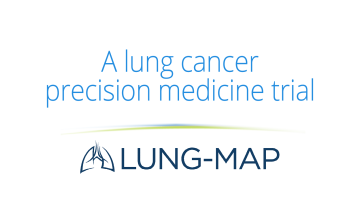Moonshot and SWOG: Mostly in the Same Orbit
Last week, Vice President Joe Biden stood in the Oval Office and presented the White House Cancer Moonshot Task Force report to the public. After nine months of work – which SWOG was proud to be a modest part of – we can now see the task force’s strategy for speeding progress in cancer care and research. Their overarching goal: Make 10 years of innovation happen in five.
SWOG strongly endorses the plan. The Cancer Moonshot Task Force and SWOG share many priorities and support some of the same concepts and projects. On more than a few fronts, we’re moving in the same direction.
We have actually engaged with Moonshot leaders already. At our April group meeting, five teams of SWOG members took part in closed-door sessions with White House Presidential Innovation Fellows Michael Balint and Kara DeFrias, who is also a Moonshot Task Force member. We were honored they visited on behalf of Vice President Biden, coming to San Francisco to do research for the final report. They wanted to talk about data management, trial recruitment and awareness, new trial designs, and increasing trial access, particularly for underrepresented groups.
Though it’s not clear whether or not SWOG should take credit (perhaps I will, just to be safe), some concepts shared in San Francisco surfaced in the Washington report, as did a few priorities. Here’s where SWOG and the Moonshot Task Force match up:
• A strategic priority listed in the Moonshot report is unleashing the power of data. We agree. Dr. Craig Nichols is heading up efforts to mine National Clinical Trials Network (NCTN) trial data to identify fresh research questions. SWOG also supports CancerLinQ, ASCO’s big data initiative to connect and analyze medical records to improve patient care.
• The Moonshot aims to improve patient access and care. SWOG of course has a major commitment to both, and last year launched the VA Integration Support Program that’s opened more than a dozen NCTN studies at VA medical centers across the country. SWOG has a very strong cancer care delivery research program, and formed the recruitment and retention core a few years ago to focus on minority trial recruitment. Like the Moonshot Task Force, we support expanding trial eligibility, including dropping the age minimum from 18 years. Finally, the Task Force backs international trials – opening U.S. trials to foreign partners and also launching trials designed to attract a global patient pool. SWOG is an NCTN leader in this area, with member sites in six other countries and an active training program in Latin America.
• Bringing new therapies to patients faster is another Moonshot priority. We’re also interested in expediting researcher access to cancer compounds in a variety of ways, including enhanced communications and relationships with our pharmaceutical partners. We know studies like our Lung-MAP precision medicine trial, with its unique umbrella design, can test several drugs or drug combinations simultaneously, reducing trial ramp-up time.
Again and again, as I read the report, I found myself nodding in agreement. They’re optimistic about mobile technologies. So is our new digital engagement committee. They support symptom management and patient-reported outcomes in research; So do we. They’re bullish on site agnostic trials. So is SWOG.
I’d like to thank all of the SWOG members and staff who took part in those Moonshot meetings this spring. These folks worked hard to brainstorm and share their best ideas. Deep appreciation to Heidi Adams, Rick Bangs, Dr. Elise Cook, Dr. Don Dizon, Dr. Lee Ellis, Nathan Eriksen, Dr. Mike Fisch, Gretchen Goetz, Dr. Julie Gralow, Sandra Hamilton, Dr. Roy Herbst, Dr. Dawn Hershman, Evonne Lackey, Wendy Lawton, Dr. Mike LeBlanc, Dr. Craig Nichols, Dr. Anne Schott, Dana Sparks, Dr. Ian Thompson, Dr. Joe Unger, and Dr. James Wade III.
To read the White House Cancer Moonshot Task Force report, check it out here.
Next up: Going even further. I’m not sure what SWOG’s Mars Shot will be, but stay tuned.
Other Recent Stories



